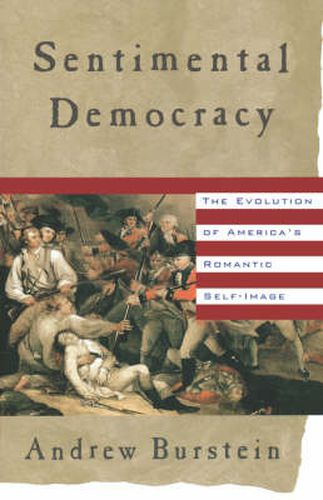Readings Newsletter
Become a Readings Member to make your shopping experience even easier.
Sign in or sign up for free!
You’re not far away from qualifying for FREE standard shipping within Australia
You’ve qualified for FREE standard shipping within Australia
The cart is loading…






The provocative interpretation of American political rhetoric
Americans like to use words of sentiment and sympathy, passion and power, to explain their democracy. In a provocative new work, Andrew Burstein examines the metaphorically rich language which Americans developed to express their guiding principle: that the New World would improve upon the Old. In journals, letters, speeches, and books, an impassioned rhetoric of feeling set the tone for American patriotism.
Burstein shows how the eighteenth century culture of sensibility encouraged optimism about a global society: the new nation would succeed. Americans believed, as much by sublime feeling as by intellectual achievement or political liberty. As they grew more self-confident, this pacific ideal acquired teeth: noble Washington and humane Jefferson yielded to boisterous Jackson, and the language of gentle feeling to the force of Manifest Destiny. Yet Americans never stopped celebrating what they believed was their innate impulse to do good.
$9.00 standard shipping within Australia
FREE standard shipping within Australia for orders over $100.00
Express & International shipping calculated at checkout
The provocative interpretation of American political rhetoric
Americans like to use words of sentiment and sympathy, passion and power, to explain their democracy. In a provocative new work, Andrew Burstein examines the metaphorically rich language which Americans developed to express their guiding principle: that the New World would improve upon the Old. In journals, letters, speeches, and books, an impassioned rhetoric of feeling set the tone for American patriotism.
Burstein shows how the eighteenth century culture of sensibility encouraged optimism about a global society: the new nation would succeed. Americans believed, as much by sublime feeling as by intellectual achievement or political liberty. As they grew more self-confident, this pacific ideal acquired teeth: noble Washington and humane Jefferson yielded to boisterous Jackson, and the language of gentle feeling to the force of Manifest Destiny. Yet Americans never stopped celebrating what they believed was their innate impulse to do good.